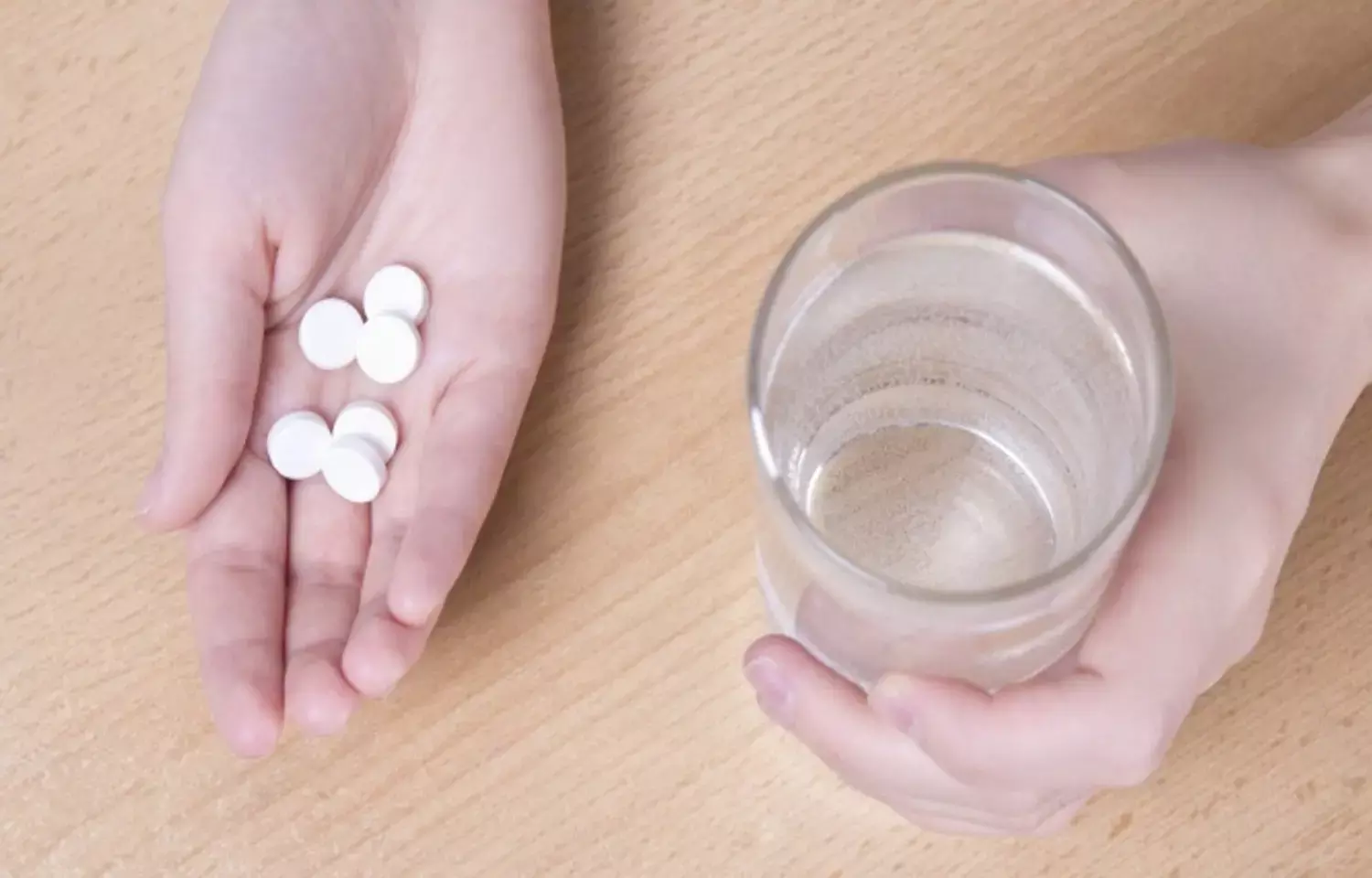- Home
- Medical news & Guidelines
- Anesthesiology
- Cardiology and CTVS
- Critical Care
- Dentistry
- Dermatology
- Diabetes and Endocrinology
- ENT
- Gastroenterology
- Medicine
- Nephrology
- Neurology
- Obstretics-Gynaecology
- Oncology
- Ophthalmology
- Orthopaedics
- Pediatrics-Neonatology
- Psychiatry
- Pulmonology
- Radiology
- Surgery
- Urology
- Laboratory Medicine
- Diet
- Nursing
- Paramedical
- Physiotherapy
- Health news
- Fact Check
- Bone Health Fact Check
- Brain Health Fact Check
- Cancer Related Fact Check
- Child Care Fact Check
- Dental and oral health fact check
- Diabetes and metabolic health fact check
- Diet and Nutrition Fact Check
- Eye and ENT Care Fact Check
- Fitness fact check
- Gut health fact check
- Heart health fact check
- Kidney health fact check
- Medical education fact check
- Men's health fact check
- Respiratory fact check
- Skin and hair care fact check
- Vaccine and Immunization fact check
- Women's health fact check
- AYUSH
- State News
- Andaman and Nicobar Islands
- Andhra Pradesh
- Arunachal Pradesh
- Assam
- Bihar
- Chandigarh
- Chattisgarh
- Dadra and Nagar Haveli
- Daman and Diu
- Delhi
- Goa
- Gujarat
- Haryana
- Himachal Pradesh
- Jammu & Kashmir
- Jharkhand
- Karnataka
- Kerala
- Ladakh
- Lakshadweep
- Madhya Pradesh
- Maharashtra
- Manipur
- Meghalaya
- Mizoram
- Nagaland
- Odisha
- Puducherry
- Punjab
- Rajasthan
- Sikkim
- Tamil Nadu
- Telangana
- Tripura
- Uttar Pradesh
- Uttrakhand
- West Bengal
- Medical Education
- Industry
PPIs do not improve morning symptoms in asthma patients with GERD: Study

Asthma often coexists with gastro-oesophageal reflux disease (GERD). The effect of proton pump inhibitors (PPIs) treatment on asthma concomitant with GERD was inconsistent. In a recent meta-analysis conducted at the Department of Pulmonary and Critical Care Medicine, Peking Union Medical College Hospital, Beijing, China, researchers found out that proton pump inhibitors therapy did not show a statistically significant improvement on morning peak expiratory flow in asthma patients having gastro-oesophageal reflux disease, neither in subgroup with symptomatic gastro-oesophageal reflux disease nor in subgroup with treatment duration >12 weeks.
The study is published in the Journal of Respiratory Medicine.
Zhoude Zheng and colleagues aimed to assess whether proton pump inhibitors treatment improved morning peak expiratory flow (mPEF) in asthma patients with gastro-oesophageal reflux disease.
Fourteen randomised clinical trials with a total of 2182 participants were included in the study. Overall, proton pump inhibitors versus placebo did not affect morning peak expiratory flow in patients with asthma having gastro-oesophageal reflux disease (weighted mean difference 8.68 L/min, 95% CI −2.02 to 19.37, p=0.11).
Trial sequential analysis (TSA) further confirmed this finding (TSA adjusted 95% CI −1.03 to 22.25). Subgroups analyses based on the percentage of patients with symptomatic gastro-oesophageal reflux disease ≥95%, treatment duration >12 weeks also found no statistically significant benefit on morning peak expiratory flow.
Similarly, analyses of secondary outcomes (evening PEF, forced expiratory volume in 1 s, asthma symptoms score, asthma quality of life score and episodes of asthma exacerbation) did not show significant difference between proton pump inhibitors and placebo.
As a result, the authors concluded that in this meta-analysis, proton pump inhibitors therapy did not show a statistically significant improvement on morning peak expiratory flow in asthma patients having gastro-oesophageal reflux disease, neither in subgroup with symptomatic gastro-oesophageal reflux disease nor in subgroup with treatment duration >12 weeks.
This analysis does not support a recommendation for proton pump inhibitors therapy as empirical treatment in asthma patients with gastro-oesophageal reflux disease, they further inferred.
http://dx.doi.org/10.1136/bmjopen-2020-043860
Dr. Nandita Mohan is a practicing pediatric dentist with more than 5 years of clinical work experience. Along with this, she is equally interested in keeping herself up to date about the latest developments in the field of medicine and dentistry which is the driving force for her to be in association with Medical Dialogues. She also has her name attached with many publications; both national and international. She has pursued her BDS from Rajiv Gandhi University of Health Sciences, Bangalore and later went to enter her dream specialty (MDS) in the Department of Pedodontics and Preventive Dentistry from Pt. B.D. Sharma University of Health Sciences. Through all the years of experience, her core interest in learning something new has never stopped. She can be contacted at editorial@medicaldialogues.in. Contact no. 011-43720751
Dr Kamal Kant Kohli-MBBS, DTCD- a chest specialist with more than 30 years of practice and a flair for writing clinical articles, Dr Kamal Kant Kohli joined Medical Dialogues as a Chief Editor of Medical News. Besides writing articles, as an editor, he proofreads and verifies all the medical content published on Medical Dialogues including those coming from journals, studies,medical conferences,guidelines etc. Email: drkohli@medicaldialogues.in. Contact no. 011-43720751


